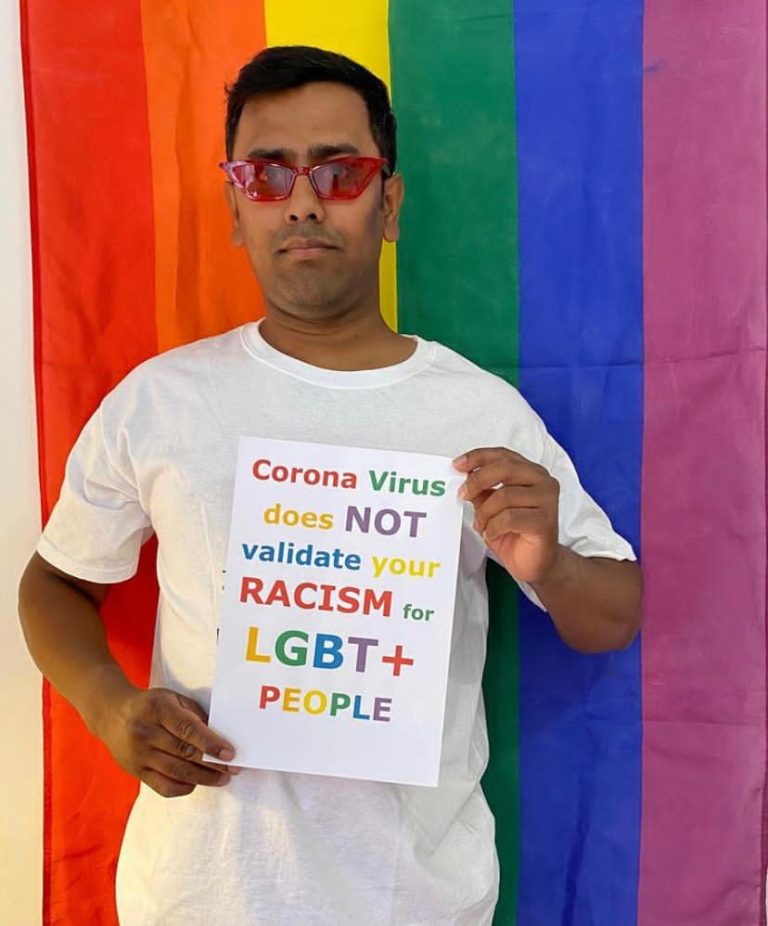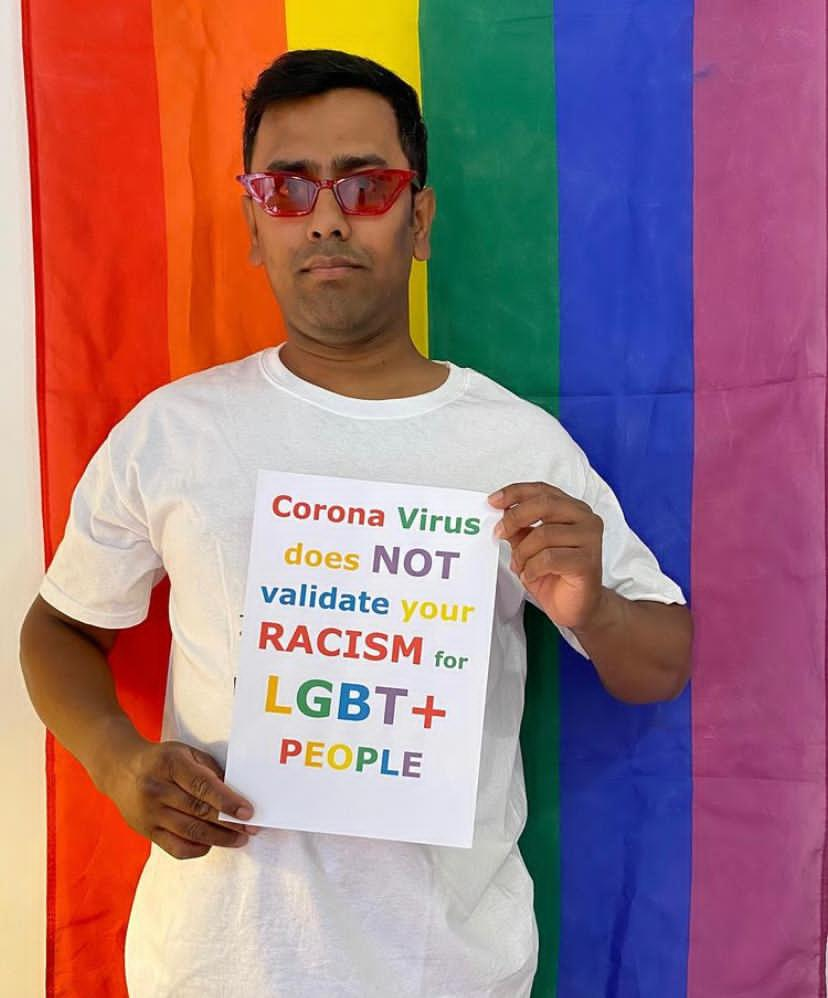
LGBT+ refugee campaigners take part in the Pride in London parade in July, 2019 in London, England. (Wiktor Szymanowicz/Barcroft Media via Getty)
An LGBT+ asylum charity says the pandemic has put even more pressure on vulnerable people left isolated, hungry and struggling.
Earlier this year, African Rainbow Family was one of the groups who received funding from Black Lives Matter UK, as it began distributing the £1.2 million in donations it received following widespread protests in summer 2020.
African Rainbow Family is a volunteer-run charity offering urgent support for queer asylum seekers of African heritage and other Black and Asian communities. It was established in 2014 by a lesbian in response to “toxic and draconian” laws in African countries that are in the Commonwealth. In recent years, its work has become ever more crucial.
According to experimental Home Office figures, 1,212 asylum applications on the basis of sexual orientation were lodged in 2019, representing three per cent of all claims. That year, the grant rate for LGB asylum applications was 46 per cent, six points lower than the overall rate. This was an improvement on recent years (the rate dropped to just 22 per cent in 2017), however there continues to be widespread calls for a major overhaul of the often cruel way the Home Office treats queer people seeking asylum.
In July 2020, researchers from the University of Sussex found a pervasive “culture of disbelief” against LGBT+ asylum seekers both in the UK and across Europe. It followed a 2019 revelation that the UK had refused at least 3,100 people who had fled nations where being queer is illegal, and were seeking asylum on this basis.
LGBT+ people seeking asylum have faced mockery and derision during Home Office processes, been told they “aren’t gay enough” to warrant asylum or couldn’t possibly be lesbian because they are also Christian.
Before they even get to this point, many are left in limbo for years. “We have some people who’ve been waiting five years,” says Nadim Uddin, one of African Rainbow Family’s volunteers.
Nadim himself has been waiting a number of years for his asylum decision. He’s gay and originally from Bangladesh, where homosexuality is illegal, and like most of the charity’s volunteers, “knows how it feels to live in uncertainty”.
Those who are waiting for a decision can ask the government for somewhere to live, but have no choice in which part of the country this is, potentially cutting them off from loved ones. They can also claim just under £40 a week, which is approximately £5 per day for food, clothing, medicines and essential toiletries. Some, such as those who’ve been refused asylum and have also rejected housing offered by the Home Office, get nothing. And, aside from in limited circumstances, until asylum is granted, a person cannot legally work to earn their own keep.
“A lot of people used to get food from food banks or though charities,” Nadim explained. “Maybe from friends or other people. But as COVID hit, all the food banks shut down. Most of them are from Africa or Asia and have different food requirements.”

It’s not just about food. Something as simple as being able to call a loved one means being able to buy phone credit. Watching a film on Netflix or joining in with a Zoom call, things that help many people combat loneliness and stress in lockdown, are impossible if you have no way of accessing the internet. Buying hand sanitiser, face coverings and hygiene products all cost money.
Lockdown was stressful for everyone, Nadim says. “But if you have access to the phone, and have enough money to make phone calls, if you aren’t able to see your loved ones but you can at least speak to them, [things are easier].” Some members of the African Rainbow Family are in relationships, but because they have no choice in government accommodation, “one might be living in Cardiff, the other in Scotland”.
“Sitting at home, doing nothing, not able to meet anyone, not having phone credit to speak to each other, it’s stressful,” he adds.
The charity has been fundraising throughout the pandemic. It’s been able to pay £35 a week to between 70 and 100 of its most vulnerable members who do not receive government funds, with an extra £10 per month to buy phone credit. It’s run karaoke Zoom nights and other online events to help people’s mental health, and where possible has stepped in to buy tablets or digital devices. Throughout lockdown it’s also offered counselling and group sessions. But it can only do so much with the limited funds and resources it has.
“We are knocking every single door to see who can help us,” says Nadim. Currently the charity has branches in London, Manchester, Birmingham and Leeds, but ideally it would operate in every city in the UK, with paid staff, and would be able to support “as many people as possible”.
“We want to continue helping people until our work is no longer required,” Nadim says. “These people are the most vulnerable. They don’t have the right to work, they don’t have access to anything. It doesn’t matter what your immigration status is, your legal status is, you’re a human being. You should at least be able to have enough food to eat every day. We don’t want anyone to sleep on an empty stomach.”
You can support African Rainbow Family through GoFundMe or directly through its website, which has details for setting up regular donations, PayPal payments and bank transfers.